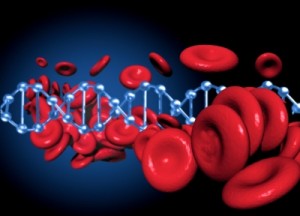
Do you know your genes? A couple of weeks ago, I was talking with one of my friends who shared that he and his wife received genetic counseling while they were engaged. Wow, that’s great, I thought. As a parent of a child with a genetic disorder, I strongly recommend it to couples who are considering marriage or having children; although genetic counseling can be important for people at any stage of life to consider. I also believe not receiving genetic counseling can be a mistake, which can later be very costly.
One of the largest expenses today, are medical expenses. Even with good health insurance, the co-pays can add up tremendously. Thus, genetic counseling is a great preventive measure people should take.
One of my person concerns about genetic counseling was that all health insurances do not a cover the cost. Although, this is the case, it makes sense to pay now before there may be a lifetime of payments that you can prepare for or choose to avoid. Genetic testing should be seen as a positive gift. It is the personal pieces to a puzzle that you will have access to, which can help better equip you for your life ahead.
What is genetic counseling?
According to genome.gov genetic testing are tests that show the framework of a persons DNA. The person reading the test “look for alterations in a person’s genes or changes in the level or structure of key proteins coded for by specific genes. Genetic tests can also be used to look at levels of RNA that play a role in certain conditions. Abnormal results on these tests could mean that someone has a genetic disorder.”
Genetic tests can reveal the following:
- Give a diagnosis if someone has symptoms.
- Show whether a person is a carrier for a genetic disease. Carriers have an altered gene, but will not get the disease. However, they can pass the altered gene on to their children.
- Help expectant parents know whether an unborn child will have a genetic condition. This is called prenatal testing.
- Screen newborn infants for abnormal or missing proteins that can cause disease. This is called newborn screening.
- Show whether a person has an inherited disposition to a certain disease before symptoms start.
- Determine the type or dose of a medicine that is best for a certain person. This is called pharmacogenetics. (Source)
Free Family History Collection Resources:
I really like the way this video from The University of Alabama at Birmingham School of Health Professions, which explains genetic counseling.
Disclaimer: This is not a sponsored post.


